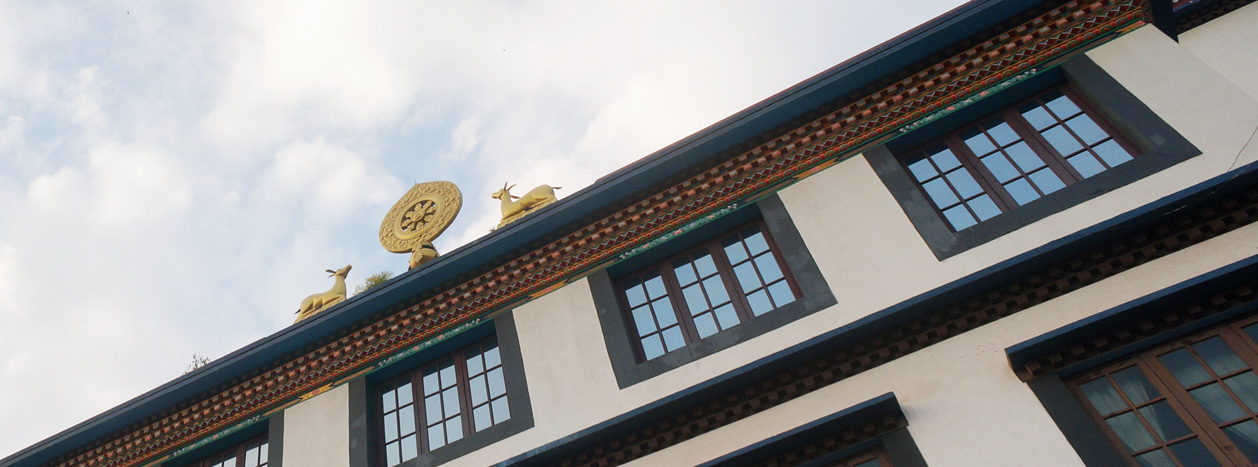Buddhist centers


Tibetan Buddhism has spread far beyond the Himalayas. In the last fifty years, many Karma Kagyu centers have been established all over the world. These dharma centers preserve important Buddhist traditions and knowledge, as well as providing students with the opportunity to practice monastic and lay Buddhism. Inspired by His Holiness the 16th Karmapa, the Karma Kagyu centers share the authentic teachings of the Buddha.
Today, over 900 Buddhist centers and monasteries in 68 countries follow Thaye Dorje, His Holiness the 17th Gyalwa Karmapa, and the 900 year old Karma Kagyu lineage. Thaye Dorje was recognised as the 17th Karmapa by the late 14th Shamarpa, in accordance with the tradition of the lineage.
You can search for a Buddhist center, monastery, nunnery, or institution near you on the Buddhist Centers page. Or read on for information about the different kinds of Buddhist centers.
Buddhist monasteries are where ordained monks or nuns live, study, and practice. Karmapa oversees a large number of monastic institutions in different countries. Monasteries are essential for preserving the traditions of the Karma Kagyu lineage. Monks and nuns devote themselves full-time to formal study and practice of the Dharma. In addition to studying Buddhist philosophy and practicing meditation, they learn traditional rituals specific to the Karma Kagyu.
Many people interested in Buddhism have families, careers, and responsibilities. A monastic lifestyle may not be possible or appropriate. The spread of Buddhism to the West has coincided with a large rise in the number of lay (non-monastic) Buddhist centers. Lay Buddhist centers offer busy modern people the chance to learn authentic, effective Buddhist meditations. Practices such as the meditation on the 16th Karmapa, given by His Holiness the 16th Karmapa himself, can be performed daily in 20 minutes or less.
His Holiness values and promotes education. Among the educational institutes under Karmapa’s direction are the Karmapa International Buddhist Institute (KIBI) in New Delhi, India, the Shri Diwakar Vihara Buddhist Research and Educational Institute in Kalimpong, India, and the International Institute for Tibetan and Asian Studies (ITAS) in Karma Guen, Spain.
KIBI, in cooperation with Mewar University, offers a Bachelor of Arts in Buddhist Studies over a three-year academic course, and is attended by students from India and around the world. The Shri Diwakar Institute offers the equivalent of a combined high school and university education to its resident monks. ITAS trains the next generation of Buddhist translators through intense part-time language and philosophy courses.
In Tibet, the most serious Buddhist practitioners would meditate in solitude in mountainside caves and other remote places. Today’s retreat centers provide practitioners with the conditions to focus on their meditation without needing to contend with difficult outer conditions. In the Karma Kagyu tradition, retreats are usually undertaken when one has been meditating for some time, and under the guidance of one’s lama (Buddhist teacher).
Follow Karmapa on social media